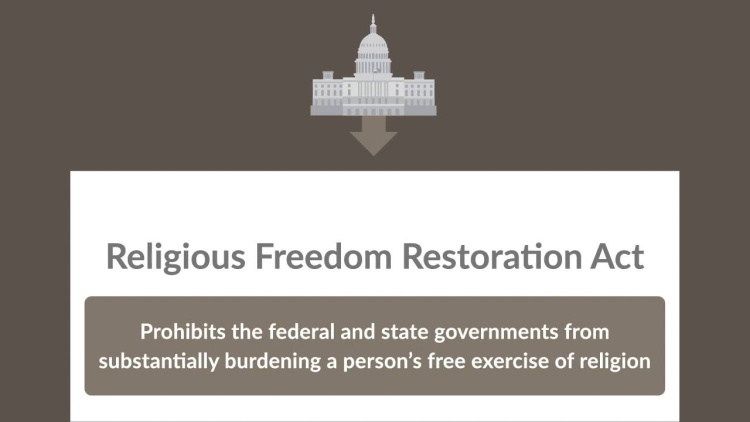City of Boerne v. Flores
United States Supreme Court
521 U.S. 507, 117 S.Ct. 2157 (1997)
- Written by Jamie Milne, JD
Facts
In the 1990 case Employment Div., Dept. of Human Resources of Oregon v. Smith, Native Americans challenged an Oregon law criminalizing peyote use, arguing that it impinged on their religious practices and therefore violated the First Amendment’s Free Exercise Clause. The Supreme Court deemed the law constitutional because it was a law of general applicability not specifically targeting religious practices. Unhappy with the Court’s ruling, Congress enacted the Religious Freedom Restoration Act (RFRA), which prohibited federal and state governments from substantially burdening a person’s free exercise of religion, even if the burden resulted from a law of general applicability. Under RFRA, a person’s free exercise of religion could be substantially burdened only if the government showed that its actions were necessary to achieve a compelling government interest and were the least restrictive means of furthering that interest. Archbishop Flores (plaintiff) sought a building permit from the City of Boerne (Boerne) (defendant) to expand a church building. Boerne denied the permit under a city ordinance that prevented expansions of structures designated as historic landmarks. The church was deemed a historic landmark. Flores sued Boerne, arguing that Boerne’s denial of the permit violated RFRA. Boerne countered that RFRA was unconstitutional because it exceeded Congress’s enforcement power under § 5 of the Fourteenth Amendment. The district court held that RFRA was unconstitutional, but the court of appeals reversed. The United States Supreme Court granted certiorari.
Rule of Law
Issue
Holding and Reasoning (Kennedy, J.)
Concurrence (Stevens, J.)
Concurrence (Scalia, J.)
Dissent (O'Connor, J.)
Dissent (Souter, J.)
Dissent (Breyer, J.)
What to do next…
Here's why 907,000 law students have relied on our case briefs:
- Written by law professors and practitioners, not other law students. 47,100 briefs, keyed to 996 casebooks. Top-notch customer support.
- The right amount of information, includes the facts, issues, rule of law, holding and reasoning, and any concurrences and dissents.
- Access in your classes, works on your mobile and tablet. Massive library of related video lessons and high quality multiple-choice questions.
- Easy to use, uniform format for every case brief. Written in plain English, not in legalese. Our briefs summarize and simplify; they don’t just repeat the court’s language.





